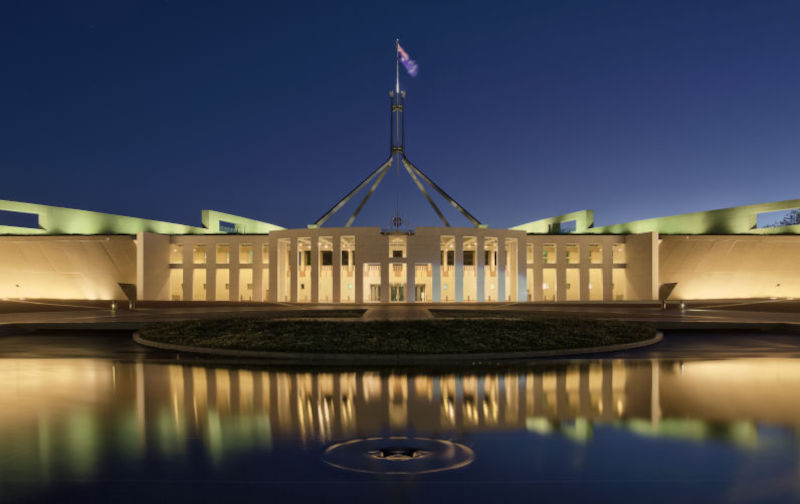
The model of parliamentary democracy which the modern world inherited from Britain is obviously not working properly any more, because the major parties today don’t stand for coherent and reliable policies which reflect fundamental social divisions and opposing interests in our society.
In the current global climate where everything seems to be in flux, the issues facing national parliaments are just too complex, the conflicting pressures from economic demands and environmental concerns too great, and ideas how to ‘move forward’ too divided.
Instead of ruling with a clear mandate and direction, politicians on both sides of the house are now permanently engaged in a precarious balancing act between the competing demands of party platforms, election promises, budgetary considerations, economic imperatives, social and environmental problems, community expectations, media scrutiny and last but not least their personal career interests.
The old policy battles between the Left and the Right, between ‘progressives’ and ‘conservatives’, have lost traction. The political game is no longer one of tough and reliable opposition through which the major parties hold each other to account. It has become one of opportunistic competition for power among politicians and party factions in the exclusive hothouse atmosphere of national parliaments.
The traditional dynamic started to change in the 198Os when Labour morphed from a staunch opposition into a ruling party and, moving further to the middle ground, necessarily became more conservative. In the process it largely left behind the interests and concerns of the lower strata of society and became a platform for the professional and well-to-do middle class, from which most politicians are after all recruited.
Not long ago an American media commentator on the PBS Newshour, now retired, made the point that the US Democrats, who traditionally were closer to the working class, aren’t in tune any more with people ‘who take their lunch to work’, and are now closer to those who ‘wine and dine’ in expensive restaurants.
The decline of Labour’s working-class allegiance accelerated when the Wall came down in Berlin in 1989 and the communist Soviet bloc consequently collapsed. With the demise of Communism, Western democratic governments, under the guidance of the US, lost their major foe and competitor, against whom they could define and declare themselves as being superior. And this in turn severely undermined the power of oppositional thinking and debate in parliament. The Greens offered alternative visions and programs for a while, but being primarily occupied with middle class environmental issues, they too largely neglected social reforms and, in Australia at least, have little chance to assert themselves against the established political power brokers.
All political parties have so far failed to recognise and deal with the rise of the service sector which today makes up the largest and most important part of the workforce. The millions of people involved in the transport and the production of commodities, in sales and services, in health and age care, as well as in many other areas of social life, today carry the heaviest load in society, without being properly rewarded and represented.
The decline of ‘social democratic’ parties accelerated when Labour leaders in Europe, Britain and Australia – Gerhard Schröder, Tony Blair and Bob Hawke, to name just the most prominent – increasingly aligned themselves with the corporate world. Instead of pursuing fundamental social reforms of the kind which were introduced in the sixties, they found an exciting new goal to pursue: the privatisation of public utilities. Needless to say, the conservative parties happily followed suit.
Privatisation meant a big boost to corporate – and often personal – profits in an already thriving global economy, but following this path, governments unwittingly gave away much of their power over industry and the business world, and surrendered their control in many spheres of public life. It also made it more difficult for them to stop illegal practices, especially in the large banks, and encouraged corrupt elements from surfacing in the political arena.
Privatisation had other even more detrimental effects. When important public institutions like transport, health insurance, education, energy and telecommunications were fully or partly privatised, it invariably brought about higher costs of living, and this more than anything contributed to the deepening of economic inequality which large numbers of people are struggling with today, while a sizeable minority – not just the richest one percent – benefit from it.
Finally, and most importantly, privatisation and the relentless drive for profits made it more difficult for governments to deal with the biggest challenge of our time: the contradiction between Economic Growth and Environmental Sustainability, which is without doubt the hardest battle facing global society in the 21st century. How can it ever be resolved?
In the past decade it has become abundantly clear that we cannot expect governments and politicians alone to tackle this problem, the whole of society is involved, in the cities as much as in the country. All of us share some responsibility for what is happening – to widely varying degrees of course, depending on our economic and social situation – and we must all do something about it, individually and collectively.
Without a strong and effective opposition in parliament – which was once the basic tenet of a viable democracy – it is now up to the community itself to hold the government to account, wherever possible and whenever necessary. Change is already happening, with increasing awareness and demands for appropriate action among industry, business and large sections of the population. This development will hopefully lead to much-needed changes in our outmoded system of political representation, in ways we are not yet able to properly envisage and understand.




